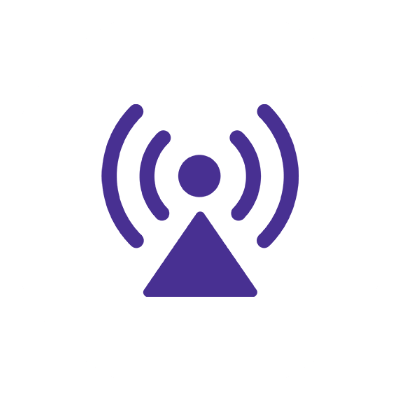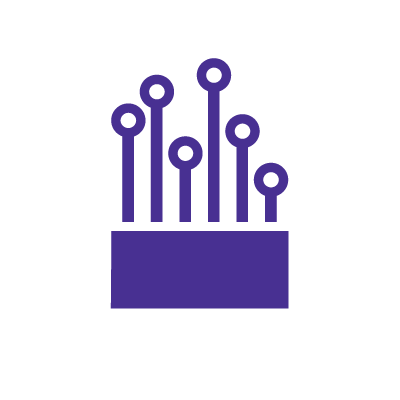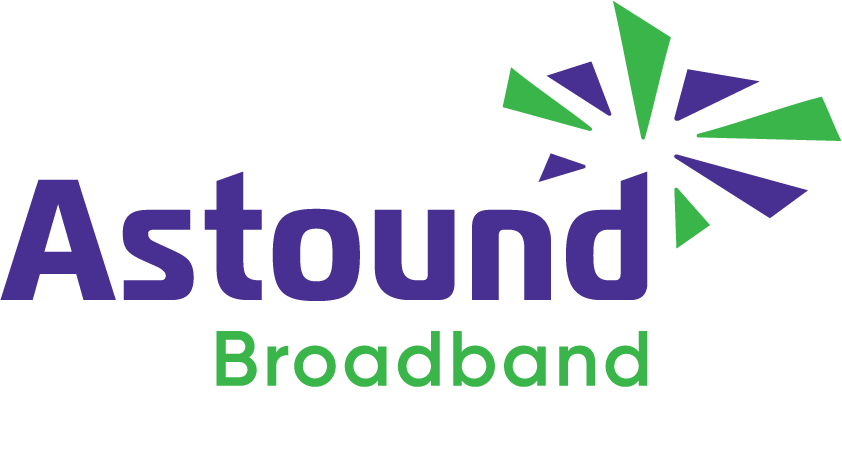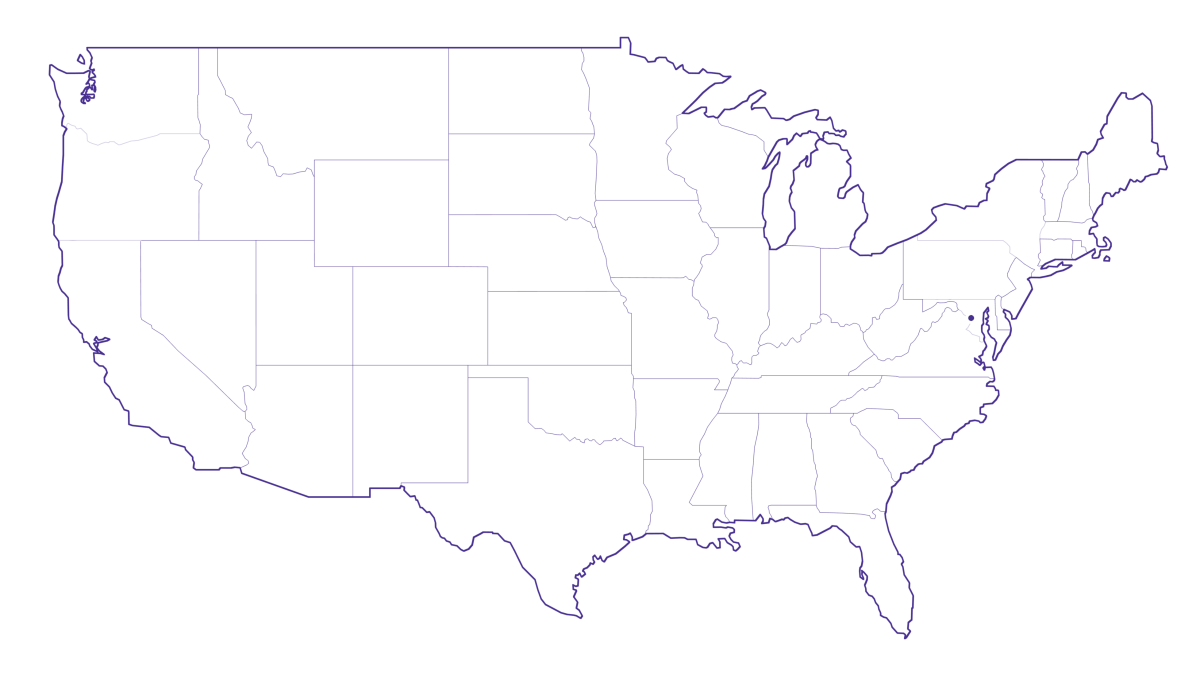How fast is 5G home internet? (& is it good enough?)

If you’re considering upgrading or starting a new internet plan, you might be wondering how fast 5G home internet is. 5G home internet and fixed wireless access (FWA) are both terms used interchangeably to describe the use of 5G technologies from wireless cellular networks to deliver 5G internet into the home.
Depending on the FWA provider, the time of day and whether or not the network is congested, some 5G home internet plans typically provide a range of download speeds that vary from 40 Mbps to 300 Mbps.
However, the experience of 5G home internet for consumers can be different than advertised.
For example, during peak usage times, users on Reddit reported slowdowns of as much as 95% in densely populated areas with 5G infrastructure. This means a 300 Mbps 5G home internet connection could slow down to as little as 5 Mbps.
In this article, you’ll learn more about how fast 5G internet speeds are, and how 5G’s drawbacks might impact your internet connection.
The FWA technology gap
You deserve better internet
Fixed Wireless Access (FWA) uses radio waves which are impacted by obstacles like buildings and trees, resulting in reduced reliability.

Is 5G home internet fast enough?
Whether or not 5G home internet is fast enough for your needs depends on several factors, as well as the activities you perform when accessing the internet.
If you depend on the internet for gaming, working from home or streaming content, then 5G internet may not be fast enough or provide a consistent experience for you.
Most people consider download speeds first when figuring out their usage needs. People consume more data when downloading. However, upload speeds are essential for sending large amounts of data.
Your actual speed experience can vary, as 5G home internet speeds may be affected by factors that even the FWA provider cannot control including:
-
- Distance from cell towers
- Weather events
- Coverage
Ask the Expert video tutorial: What are the disadvantages of 5G home internet?
Location
Your location can be a limiting factor, for example, 5G home internet coverage isn’t available everywhere.
Because 5G home internet uses radio frequencies, signals are limited by distance. The further you are from the radio towers, the weaker your internet signal will be.
Moreover, even if you’re near the radio towers, buildings, trees and other objects can block those signals.
On the other hand, due to fiber’s robust design, fiber-powered ISPs can deliver a more consistent connection. Fiber is resistant to electromagnetic interference, temperature changes and weather conditions, leading to fewer service interruptions.
Infrastructure
Fiber’s infrastructure also enables solutions like Fiber-to-the-Home (FTTH), providing direct connections from the fiber hub to the network of any residence or business.
With fiber-powered Gig internet, customers can connect their phones, tablets, TVs, gaming consoles and other devices to access a more consistent connection.
Selection
While both fiber internet and 5G can deliver speed, with fiber consumers can choose from multiple speed tiers, ranging from lower to higher speeds, based on their needs, demands and plans.
Switch & save
Astound is the #1 cable ISP
Stream live content, work, surf, game and connect to multiple devices with speeds up to 1500* Mbps through our ultra‑reliable fiber‑powered network.*

Astound internet vs. 5G home internet providers
As each FWA provider offers different upload and download speed ranges, as well as rules around throttling, congestion, network priority, and fair use policies, be sure to read through the technical specifications to understand exactly what you’re receiving.
Though speed is an important factor in choosing your internet plan, also consider:
- Latency.
- Jitter.
- Lag.
Why?
Typically, 5G internet providers cannot guarantee a specific speed; instead, they provide a range of speeds.
Moreover, there are other factors to consider when assessing 5G home internet, such as latency, jitter, and lag.
Ask the Expert video tutorial: What is the experience using 5G home internet while streaming video or live TV?
1. Latency
Latency is the amount of time it takes for a data packet to go from one place to another. 5G promises lower latency. But in areas where 5G infrastructure is underdeveloped or overburdened, users may still experience significant latency, as some Redditors have reported.
If you want a more consistent connection, look for a solution like cable or fiber-powered internet.
2. Jitter
Jitter is when there is a time delay between packets of data transmitted over a network. In 5G networks, some users from reddit have reported that jitter is more pronounced in areas with unstable 5G signals, or during peak hours.
If you work from home during normal working hours on a 5G home network, you might experience poor video and audio quality. These disruptions are the direct results of jitter affecting your home 5G network.
3. Lag
Lag is almost always the result of high latency. In situations where the network is congested, or signal is weak, users might still experience noticeable delays when gaming or streaming, as seen on Reddit.
For instance, some users report their 5G home internet working at 200 Mbps, but when gaming or streaming their 5G home internet connection drops to about 10 Mbps.
Ask the Expert video tutorial: How reliable is a 5G home connection?
Let’s take a look at some of the top 5G home internet providers, and what they offer in terms of speed and reliability.
AT&T
AT&T Internet Air 5G home internet speeds:
-
- The maximum download speed available is 140 Mbps.
- Currently available only in select areas.
- AT&T may temporarily slow data speeds if the network is busy. Service may be slowed, suspended, terminated or restricted for misuse, abnormal use, interference with AT&T’s network or ability to provide quality service to others.
T-Mobile
T-Mobile 5G home internet speeds:
-
- Maximum download speed available is 245 Mbps.
- Currently available only in select areas.
- 25% of users experience slower speeds than advertised.
- During congestion, Home Internet customers may notice speeds lower than other customers due to data prioritization.
Verizon
Verizon 5G home internet speeds:
-
- Maximum download speed of 300 Mbps.
- Currently available only in select areas.
- On certain plans, Verizon may prioritize your 5G and 4G LTE data behind other traffic. If the cell site you are connected to begins experiencing high demand during the duration of your session, your 5G and 4G LTE data speeds may be slower than the other traffic’s speed.
As you can see, while 5G home internet typically can deliver speeds of 40 Mbps to 300 Mbps, it comes at a trade-off.
With Astound’s high speed internet you can get maximum download speeds of 300 Mbps* for $20 per month. You also have the option of maximum download speeds of 2,000 Mbps in select areas, which is more than 14x-50x faster than most 5G home internet providers.
With these fiber-powered speeds, you can connect 10x as many devices, and support multiple users on your home network – at scale.
Moreover, you have freedom to choose the exact speed that best fits your lifestyle whether you’re gaming, working from home or streaming
Learn more about the differences between fiber-powered internet and 5G home internet.
Fiber-powered internet
Why Fiber Internet works better
Astound’s fiber-powered internet provides consistent speeds throughout the day versus 5G Home Internet which is prone to intermittency.

5G home internet speeds vs. cable or fiber internet
Though 5G FWA providers boast speeds upwards of 300 Mbps, these speeds are typically inconsistent and can be affected by internal and external factors.
While 5G home internet plans may have a lower price point, this lower price point comes at an additional cost that consumers may have to shoulder.
Alternatively, fiber’s robust design makes it resistant to electromagnetic interference, temperature changes and weather conditions, leading to fewer service interruptions.
Fiber is less susceptible to damage or breakage and has a longer lifespan.
If your home has a lot of users or devices connected to the internet, fiber internet can bring you the most consistent connection possible.
Ask the Expert video tutorial: What you should consider before getting 5G home internet.
Bottomline: Is 5G home internet good enough?
While 5G wireless technology aims to provide users with fast speeds, low latency and increased reliability, the technology is still developing.
5G home internet varies depending on factors like location, network architecture, availability and plans.
Fiber-powered internet is a better solution than 5G home internet.
Not only does fiber and cable internet possess the most developed internet infrastructure, but it provides faster speeds and lower latency than 5G.
Fiber-powered internet is perfect for data-intensive activities including:
-
- Streaming high-res videos.
- Online gaming.
- File transfers.
- Video conferencing.
- Cloud applications.

Our fiber-powered internet and mobile solutions provide affordable, high-speed internet connectivity. Astound offers fiber-powered internet speeds from 300 Mbps to 1.5 Gbps, allowing you to surf, stream, work, learn or game without interruption.
Additionally, we offer mobile plans so you can stay connected on-the-go.
We know everyone uses their devices differently. Through our fiber-powered internet offerings, you and your friends can browse, stream and game across multiple devices on your home network.
If you’re searching for the most reliable and fastest internet solution for your business or household, consider Astound.
Read more about our internet and mobile plans.
Frequently asked questions
What is the maximum speed of 5G home internet?
On average, 5G home internet providers typically offer download speeds of 40 – 300 Mbps and upload speeds of 10 – 50 Mbps. These speeds are subject to location and availability.
Is 5G fast enough for home internet?
5G is a robust solution for wireless-enabled devices, such as cell phones. In the home, however, you may experience that 5G home internet speeds are not consistent or do not support your total number of devices and users.
What causes 5G home internet to slow down?
There are a range of factors that can cause 5G home internet to slow down. Hardware and software issues, weather events, large structures, peak usage times, network congestion and distance from cell towers can all affect a 5G home internet connection.
*Internet speeds may vary & are not guaranteed. Certain equipment may be required to reach advertised speeds. DOCSIS 3.1 modem with 2.5GE physical LAN port is required for 1 Gigabit speeds and higher. See astound.com/yourspeed for why speeds may vary. To view Astound’s FCC Network Management Disclosure see astound.com/policies-disclaimers. Limited time offer, subject to change without notice. Advertised promotional price valid for duration of the stated promotional period from time of service activation. Regular rates apply after promotional period ends. Equipment not included and is extra. Modem required for Internet service. Enhanced Wi-Fi or Whole Home Wi-Fi (eero) not included and is add’l. Offer includes a monthly discount for enrollment in both automatic payments (autopay) & paperless billing (e-bill). Discount of $10 applies with automated bank account deduction or a discount of $5 applies with automated credit/debit card payment. Valid email address required. Must complete enrollment in autopay and e-bill within 30-days of placing the order. Without enrollment, the discount does not apply. Discount appears on bill within 3 bill cycles after enrolling. If either autopay or e-bill is canceled, services are changed, or the account is not in good standing, then the monthly discount will be discontinued. Offer valid only for new residential Astound customers or previous customers with an account in good standing who have not had Astound service within the last 60 days. Any add’l services, equipment, premium channels & other tiers of service are subject to an add’l charge & regular increases. A one-time activation fee of $14.99 (in addition to any installation fees) will be charged & is subject to change. Add’l fees apply for taxes & surcharges, and are subject to change. WA RESIDENTS: unless otherwise specified, price does not include a 2% Regulatory Administration Fee. For details about taxes, fees & surcharges visit astound.com/fees. No early termination fees apply in the event service is terminated in advance of the promotional end date. Customer is responsible for any accrued service charges in the event service is canceled. Subject to credit check. Not all services & speeds are available in all areas. A multi-product discount may be available to qualifying addresses with a subscription to mobile, TV, and 600 Mbps Internet or higher. Discounts will be reflected in your order cart at time of purchase, if available. Other restrictions may apply. All services are governed by the Astound Customer Terms & Conditions that can be found at astound.com/policies-disclaimers. © 2025 Radiate HoldCo, LLC d/b/a Astound Broadband. All rights reserved.
While we have made every attempt to ensure that the information contained in this site has been obtained from reliable sources, Astound is not responsible for any errors or omissions, or for the results obtained from the use of this information. All information in this site is provided “as is”, with no guarantee of completeness, accuracy, timeliness and without warranty of any kind, express or implied, including, but not limited to warranties of performance, merchantability and fitness for a particular purpose. Certain links in this site connect to other websites maintained by third parties over whom Astound has no control. Astound makes no representations as to the accuracy or any other aspect of information contained in other websites.
AT&T Internet Air, T-Mobile 5G home internet and Verizon 5G home internet details were pulled from their respective websites on December 5, 2023. *Internet speeds may vary & are not guaranteed. Certain equipment may be required to reach advertised speeds. Limited time offer, subject to change without notice. Advertised promotional pricing valid for 12 or 24 months from service start date, subject to change thereafter. Astound offers month-to-month service with base discounted introductory rate tiers. Prior to the end of any discounted rate tier, subscribers receive a notice informing them of the end of the discounted rate tier and providing information about the next discounted rate tier. Unless otherwise specified, 2-year price lock only available w/ promo internet pricing for speeds of 500 Mbps or greater. Additional fees apply for taxes and surcharges, and are subject to change. For details about fees & taxes visit astound.com/fees. Offer includes a monthly discount for enrollment in both automatic payments (autopay) & paperless billing (e-bill). Discount of $10 applies with automated bank account deduction or a discount of $5 applies with automated credit/debit card payment. Valid email address required. Must complete enrollment in autopay and e-bill within 30-days of placing the order. Without enrollment, the discount does not apply. Discount appears on bill within 3 bill cycles after enrolling. If either autopay or e-bill is canceled, services are changed, or the account is not in good standing, then the monthly discount will be discontinued.
**Source
eero Plus is available for an additional $9.99/month and requires subscription to whole home WiFi powered by eero.

















